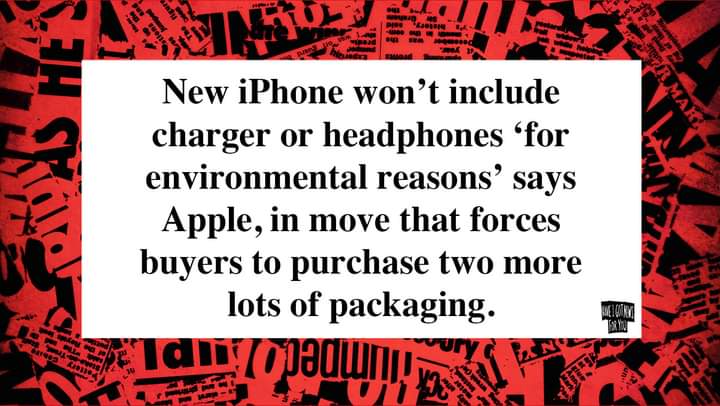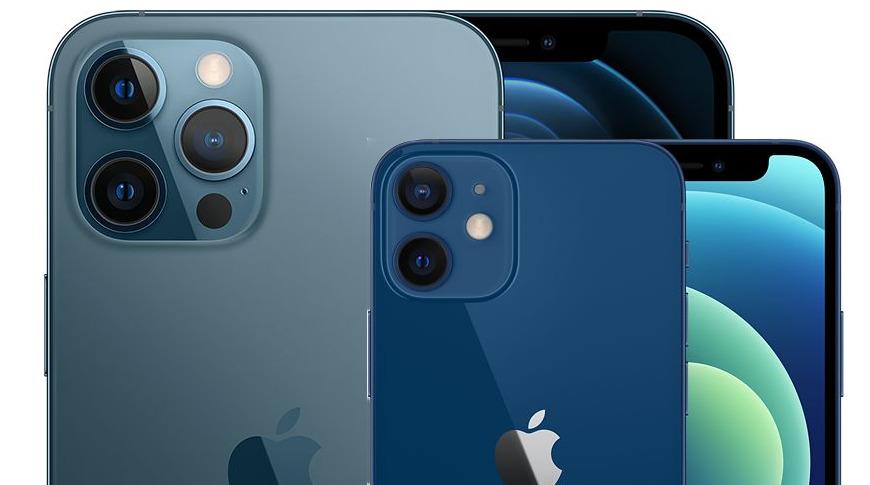The eve of Apple‘s (NYSE:AAPL) long-awaited next instalment is upon us, and in just a matter of minutes, excited applets will be able to pre-order the latest, aluminium-coated slice of Californian tech – the iPhone 12.
But do we think the iPhone 12 is worth the hype?
Well, in terms of features, there are a few new things to talk about. For instance, the confirmed iPhone Mini at 5.4 inches and iPhone 12 at 6.1 inches. Unusually, though, there could be up to four sizes launched on within a short range of release dates, with a 6.1 inch iPhone Pro and a sizeable 6.7 inch iPhone Pro Max also being announced.
iPhone 12 Size Comparison: All iPhone Models Side by Sidehttps://t.co/pZ2YatGkMx pic.twitter.com/xnXfG8JIff
— MacRumors.com (@MacRumors) October 15, 2020
What has really been grabbing headlines, though, are the iPhone’s new tech features and appearance. Boasting 5G capabilities and a 3D depth-sensing camera, Apple have made an some effort to move with the times – and will also be keeping their popular 14 interface for the launch of their new models.
In terms of the look of the thing, the iPhone 12 seems to hark back to the reliable and popular iPhone 5, taking a leaf out of the old-school book with sharp, rather than rounded edges. The phone is also being showcased in dark blue, a new colour scheme for Apple’s staple product.
The main selling point for many though, will be the price, $699 in the US and £699 in the UK for the Mini, which is far short of the iPhone X’s £999 price tag, and may appear slightly more affordable than the £729 asked for the basic iPhone 11 model.
Or is the iPhone 12 more predictability from Apple?
Having completely blown mobile phone technology into a new paradigm with the iPhone 3G and 3GS, it is little secret that ever since, Apple has been trying to find ways to replicate that success. Indeed, as stated by Daniel Morgan, senior portfolio manager Synovus Trust Co.:
“Since 2014, the newest iPhone launches have felt more like ripples opposed to a wave,”
And, to be honest, it doesn’t look like this model will be the one to do it, at least not on merit. Apple’s last big boom in devices followed the launch of the iPhone 6 and 6 Plus, and while the iPhone X’s top range models saw the company boast record-breaking revenues, its new features seem more in the range of like novelty, than revolutionary.
But perhaps that’ll be enough to get fans onboard. Indeed, Apple is seen as the cutting edge of tech fashion, its devices are battery-powered status symbols, and the addition of a swanky display was enough to get some people to pay around £1,400 for the top spec iPhone 11.
Also, some analysts (granted, ones who work for companies with large Apple holdings) believe that the iPhone 12 will spur sales that exceed beat 231 million devices sold during the 2015 fiscal year. Dan Ives, analyst for Wedbush Securities, comments:
“I believe it translates into a once-in-a-decade-type upgrade opportunity for Apple,”
One factor that might drive sales will be the pandemic, with Apple shares rallying more than 50% and its market value climbing above $2 trillion. Similarly, with consumers being more reliant on tech than ever, and looking to enjoy the endorphin hit provided by a sleek new device, the next dose of Apple might prove to be just what the doctor ordered.
Equally, though, the pandemic might discourage consumers from lavish new expenditure, or more importantly, home-working might reduce the demand for high-speed, wireless connections, as people rely more heavily on home Wi-Fi.
The other factor which could – and should – turn off some potential customers, is the fact that the iPhone 12 doesn’t actually cost £700. If you include essentials, or the items that are normally included when you buy a new handheld device – earphones, the obligatory earphone adaptor, and charger – this will set you back an additional £78. As put by Have I Got News for You:
 And that pretty much sums it up for me. Being a past Apple patron myself, these infuriating details seem to mount up to a high-style, low-substance final product; where the suave-woke zeitgeist of the brand doesn’t quite wash against what is quite clearly the company’s priority: it’s balance sheet.
And that pretty much sums it up for me. Being a past Apple patron myself, these infuriating details seem to mount up to a high-style, low-substance final product; where the suave-woke zeitgeist of the brand doesn’t quite wash against what is quite clearly the company’s priority: it’s balance sheet.
With that being said, I hope the new phone meets everybody’s expectations – it may well end up being a roaring success.

